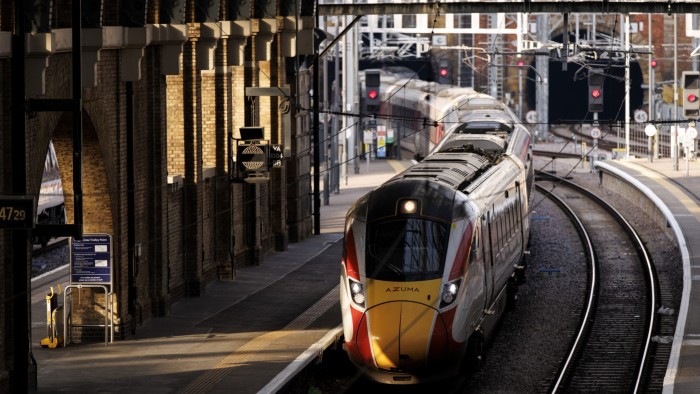This article is an on-site version of our Inside Politics newsletter. Subscribers can sign up here to get the newsletter delivered every weekday. If you’re not a subscriber, you can still receive the newsletter free for 30 days
Good morning. Good news! No kvetching about the UK government’s spending plans or Donald Trump in today’s newsletter (one or both will probably feature in tomorrow’s).
Instead I wanted to return to a policy area that continues to worry me: the government’s plans to nationalise the railways in England. Some more thoughts on that below.
Inside Politics is edited by Harvey Nriapia today. Follow Stephen on Bluesky and X. Read the previous edition of the newsletter here. Please send gossip, thoughts and feedback to insidepolitics@ft.com
Tunnel vision
Spot the nationalised railways in this chart:
The answer is, you can’t, really: the performance of England’s railways is not at all related, either way, to whether a railway is nationalised or privatised.

The same is true internationally. Although railways keep records of slightly different things, the top three most punctual railways worldwide are Japan’s (privatised), Switzerland’s (hybrid) and Hong Kong’s (government-owned).
As a fun bit of number-crunching by my colleagues on the relevant performance of England’s railways compared with Germany’s shows, what really matters is how much you are willing to spend on them and how they are managed. Germany spends less and gets worse results.

Regardless of whether you want your railways to be state-run or privatised, Japan is what you want to learn from: it has highly efficient companies that run terrific railways, funded by reinvesting the profits from the businesses and properties they operate and rent along the line.
My concern, as I’ve written before, is that Labour’s proposals show few signs of doing this. The big benefit from the party’s plans is that England’s railways can become better integrated. But, as John Gapper set out in his column last week, they will also strengthen forces that have opposed greater competition and innovation on our train lines, whether they have been nationalised or privatised.
The number of rail journeys increased considerably in England after privatisation, and given the government’s self-imposed financial constraints, I do not see how or why a nationalised railway is going to be able to spend more money on its functions anytime soon.
The government’s changes to planning laws are an exciting opportunity to learn from Japan: the UK could build railways and invest in businesses along the track, just as Japan has. But that requires money that visibly isn’t going to come from the UK Treasury. So if Labour is shutting out the private sector too, where will it come from?
Politically, however, I don’t think there is all that much direct risk to the government here. That nationalised railways work better is one of those political falsehoods that most voters believe to be true, just as most people think that crime is going up even when it is falling.
But of the things a Labour government could be doing with the railways, nationalising train operators when there is no hope or prospect of increasing their budgets seems like a policy that will end badly, even if the politics work out OK for the government.
Now try this
I saw I’m Still Here, a terrific moving film, and for me, the best movie I’ve seen this year and the standout candidate for the Oscars (though given it is an eccentric shortlist I doubt the Academy will see it that way). My only regret is that it wasn’t longer. Danny Leigh’s review is here.
Top stories today
-
‘No brainer’ | Business secretary Jonathan Reynolds will meet Indian commerce minister Piyush Goyal in New Delhi today to relaunch talks on a trade deal between the two countries, after negotiations stalled owing to elections in both the UK and India last year.
-
Machine-earning | Ministers are developing artificial intelligence tools to help jobseekers draft CVs and covering letters, to help free up Jobcentre staff to focus on more complex cases and cut the country’s welfare bill.
-
‘Just transition’ | The government has pledged £200mn of investment at Grangemouth oil refinery, as workers face redundancy with its planned closure in the coming months.
-
Exiting Brexit | Applications for Irish citizenship from Britain reached a post-Brexit high last year, as a rising number of workers and pensioners tried to gain “backdoor” access into the EU.




